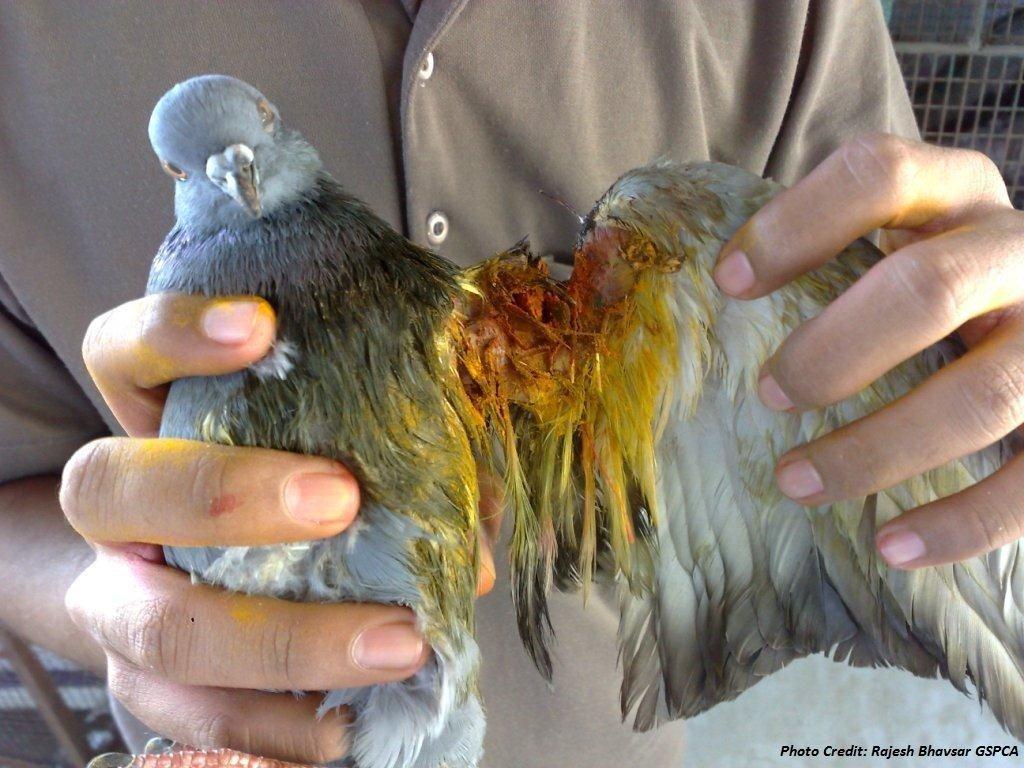UN INT Intro Text w/ Centered Large Responsive Image - *Important Note* You must UNLINK this shared library component before making page-specific customizations.
The string commonly called manja that’s used in kite-flying competitions is often made of sharp material or is coated with sharp materials like finely crushed glass or metal. It’s harmful to pigeons, crows, owls, endangered vultures, and other birds, who are often wounded or killed when they become entangled in it.

Sharp kite string is also hazardous for humans – including those travelling in open vehicles such as bicycles, motorcycles, or scooters – as it injures or kills numerous children and adults every year.
Manja also wreaks havoc on power lines. A single power line disruption can affect up to 10,000 people.
In 2017, the National Green Tribunal banned kite-flying thread made of nylon, plastic, or any other synthetic material, including that known as “Chinese dor” or “Chinese manjha”, and any synthetic kite-flying thread which is coated with a synthetic substance and is non-biodegradable across India, but the ban excluded the equally injurious cotton threads coated with glass and metal powder. However, to mitigate the danger posed by all harmful threads, the governments of Chandigarh , Delhi, Goa, Haryana, Himachal Pradesh, Karnataka, Maharashtra, Punjab, Telangana, and Tripura have surpassed this judgement’s requirements and issued notifications under the Environment (Protection) Act (EPA), 1986, prohibiting all forms of dangerous sharp kite-flying strings and allowing kite flying only with plain cotton thread free of any materials designed to increase its sharpness or strength.
Any sharp kite-flying thread risks animals, humans, and the environment. The Indian Medical Association’s (IMA) plea to Minister of Environment, Forest and Climate Change Bhupender Yadav addressed the dangers posed by cotton kite strings reinforced with glass powder or metal in addition to the notorious nylon “Chinese” manja. Acknowledging the growing threat to public health posed by the manja menace, the doctors’ association prescribes the nationwide prohibition of all sharp kite-flying threads.
Earlier this year, the central government statutory body Animal Welfare Board of India (AWBI) advised all states and union territories to amend their respective notifications under the Environment (Protection) Act (EPA), 1986, to prohibit all manja—harmful sharp threads such as nylon or cotton string coated with glass or metal—and to permit the use of only plain cotton string for kite-flying.
It’s time to stop the production, sale, and use of all sharp kite strings across India – you can help by signing the appeal form below. The compiled signatures will be sent to the Ministry of Environment, Forest and Climate Change.
